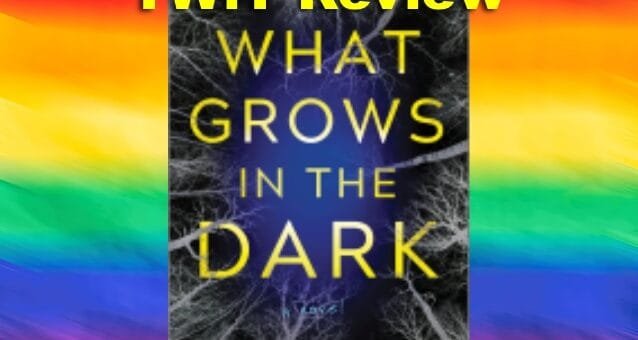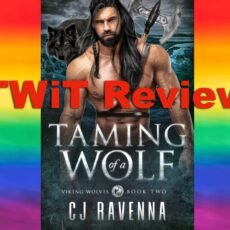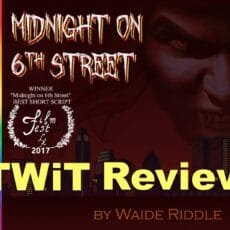
Brigit Weylan’s older sister, Emma, is dead. Sixteen years ago, Emma walked into the woods in their small hometown of Ellis Creek and slit her wrists. She was troubled, people said—moody and erratic in the weeks leading up to her death, convinced that there was a monster in Ellis Creek, and had even attempted to burn down the copse of trees where she later took her life.
Marked by the tragedy, Brigit left and never once looked back. Now, Brigit and her cameraman Ian travel around the country, investigating paranormal activity (and faking the results), posting their escapades on YouTube hoping a network will pick up their show. The last thing she expects is a call from an Ellis Creek area code with a job offer—and payout—the two cannot refuse.
When Brigit and Ian arrive in Ellis Creek, they’re thrust into an investigation: two teenagers are missing, and the trail is growing colder with each passing day. It’s immediately apparent that Brigit and Ian are out of their depth; their talents lie in faking hauntings, and not locating lost kids. Except for the fact that, in the weeks leading up to their disappearance, the teens had been dreaming about Emma—Emma in the woods where she died, ringed with trees and waiting for them.
As Brigit and Ian are drawn further into the investigation, convinced that this could be the big case to make their show go viral, the parallels to Emma’s death become undeniable. But Brigit is worried she’s gone too far this time, and that the weight of being back in Ellis Creek, overwhelmed by memories of Emma, will break her…if it hasn’t already.
Because Brigit can’t explain what’s happening to her: trees appearing in her bedroom in the middle of the night, something with a familiar laugh watching her out in the darkness, and Emma’s voice on her phone, reminding Brigit to finish what they started.
More and more, it looks like Emma was right: there is a monster in Ellis Creek, and it’s waited a long time for Brigit Weylan to come home.
After reading the book, I have mixed feelings about it. Overall, I enjoyed the storyline and found it to be quite compelling. However, if I were to offer a criticism, it would be that the author’s focus on the characters’ thoughts detracted from the real-time events taking place.
Throughout the book, the writer dedicates a significant amount of effort to delve into the inner thoughts of each character. While this allowed for a deeper understanding of their motivations and emotions, it sometimes overshadowed the urgency of the events unfolding in the present moment. There were instances where I found myself wanting the author to concentrate more on what was happening in real-time, especially during intense or suspenseful scenes.
That being said, the book did have its merits. The storyline was engaging, and I appreciated the author’s ability to create diverse characters. However, I did notice that the book barely mentioned their gender identities, which could have been explored further to provide a more comprehensive representation of the characters.
One aspect of the book that stood out to me was the author’s descriptive writing style. The vivid descriptions allowed me to visualize the scenes as they unfolded, immersing me in the story and enhancing my reading experience.
In conclusion, while I enjoyed the book and found it to be an engaging read, I believe that the author could have struck a better balance between exploring the characters’ thoughts and focusing on real-time events. Despite this, the book’s storyline, diverse characters, and descriptive writing style made it a worthwhile read.
 About the Author
About the Author
Jaq Evans is a graduate of the University of Southern Maine’s Stonecoast MFA program and a former Pitch Wars mentee. Her short fiction has been published in Three-Lobed Burning Eye, Apparition Literary Magazine, Fusion Fragment, and others.
Praise for WHAT GROWS IN THE DARK
“A surreal and deftly crafted debut. Evans weaves mystery, horror, and family through impossible forests, making you question character and truth in unsettling yet deeply satisfying ways. Though readers might invoke writers such as Paul Tremblay and Kelly Link (and perhaps even Joe Hill), Evans carves out a patch of cursed soil all her own. This is the rare book that crawled under my skin so deep that I wanted to re-read it again to see what I had missed in the dream state Evans conjured.”
—Sequoia Nagamatsu, author of How High We Go in the Dark
“Jaq Evans’s dazzling exploration of grief, identity, and the ties that bind is a powerful and unflinching journey into the hidden corners of the human heart. Compulsively readable and unfurling with the seductive beauty of a night-blooming flower, What Grows in the Dark is a thrill ride of a debut.” —Robert Levy, author of The Glittering World
“Like the characters who dare to enter the Dell, What Grows in the Dark will lure and lock you under its spell in this new horror offering that crackles with wit and sensitivity as well as scares.” —Kelly J. Ford, Anthony Award-nominated author of Real Bad Things



























